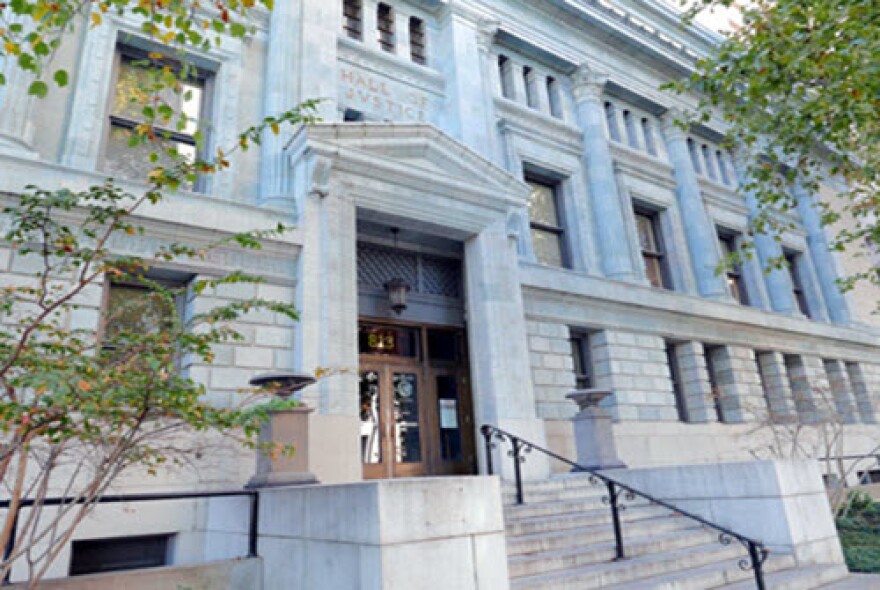In this week’s conversations on race, Chico State Sociology Professor Dr. Lesa Johnson speaks with NSPR Ken Devol about how institutional power can be used to perpetuate bias. She first explains who has power in our society and the responsibility that comes with it.
This interview has been edited for clarity and length.
On who has institutional power
A higher percentage of the white race, even though race is a social construction, a larger proportion of those people have institutional power than the percentage of Black people or Indigenous people, or LatinX, Cubano people who have institutional power. When it comes to forming the culture of our society, the culture of our society is based on the ideologies that the most powerful group carries. So what that ends up meaning is that the rules and the regulations in our society are based on the ideologies of the members of that group.
Now, if the members of that group have been socialized to believe that Black people are culturally inferior, for instance, then the members of that white society who have the most institutional power, will start to make policies, procedures, laws, and ordinances that exclude Black single mothers, just because they believe that Black single mothers are morally inept. In school education systems, the same applies. The rules and regulations will be written in a way as to continually shift power away from the people that you feel are immoral in some way or not valuable in some way.
This is just how public opinion is shaped, it's shaped through memberships in groups as the other, or as they exclude, members of other groups. If the powerful members of the powerful groups — that being the CEOs, the small business corporations, the banks, the university presidents, whomever — have been conditioned through all of their life to believe that Black men are dangerous, that Black women are derelict, that Mexicans are stealing jobs, if they have been conditioned with that type of ideology, all of their lives, then, as they are put in place to shape policies, procedures, laws, and ordinances, those secret messages will be at play in the back of their minds every time they sit down at a city council meeting or in a courtroom, or wherever it is that they can make the policies and procedures. And those legal ramifications end up harming members of marginalized groups, so that as we go through time, decades, centuries, even, we can see that laws have been made because people in the more powerful group were indoctrinated to be afraid of the people in the groups that were already marginalized.
And we have the science to back up how these brain processes work for people to foment the stereotypes and these implicit biases. But they are implicit because it's not anything that people would think of out loud, that many people would think of out loud. But there are some who are just really believing themselves to be loving and kind, but they don't recognize that they've already been indoctrinated with these very, very deep, underlying beliefs about the inherent cultural or intellectual values of other people based on their social groups.
On whether or not people are consciously aware of their bias
Another additional issue with it is once somebody can tell you that they see this in you … because it usually comes out in your behaviors, rather than in your thoughts about yourself. So you may think that you're a wonderful, loving and kind person, but then someone may come to you and point out to you, hey, I'm noticing a pattern in your behavior. But what happens with the person who is being told this, is that they get an emotional defensive mechanism that shuts everything down and says, 'that doesn't apply to my belief in who I am. So you must be lying.'
And that stops the whole process of healing.
The problem is, we get so hurt, we get so defensive, we get so just tragically, dramatically, beside ourselves, that we get this defensive mechanism that denies everything that anybody could tell us about how we are hurting them. That means that after that, all systems shut down. And if we are the people in power, that have a marginalized person telling us this, then we can now use our power to silence them, because we don't want to hear the truth as they see it in their eyes.
On whether ignoring someone is the same as silencing them
I guess that's the issue. Because we constantly feel as if ignoring is not active. But ignoring someone is active. That is an active silencing. If we decide not to get involved in a situation, if we decide not to correct a situation, if we decide that that is not really our problem, which is usually the case, somebody says 'Oh I don't know that's between them that doesn't have anything to do with me.' That is still an active refusal to solve the problem. When we post the situation in our minds, it's still as a mechanism to save our own self-esteem.




